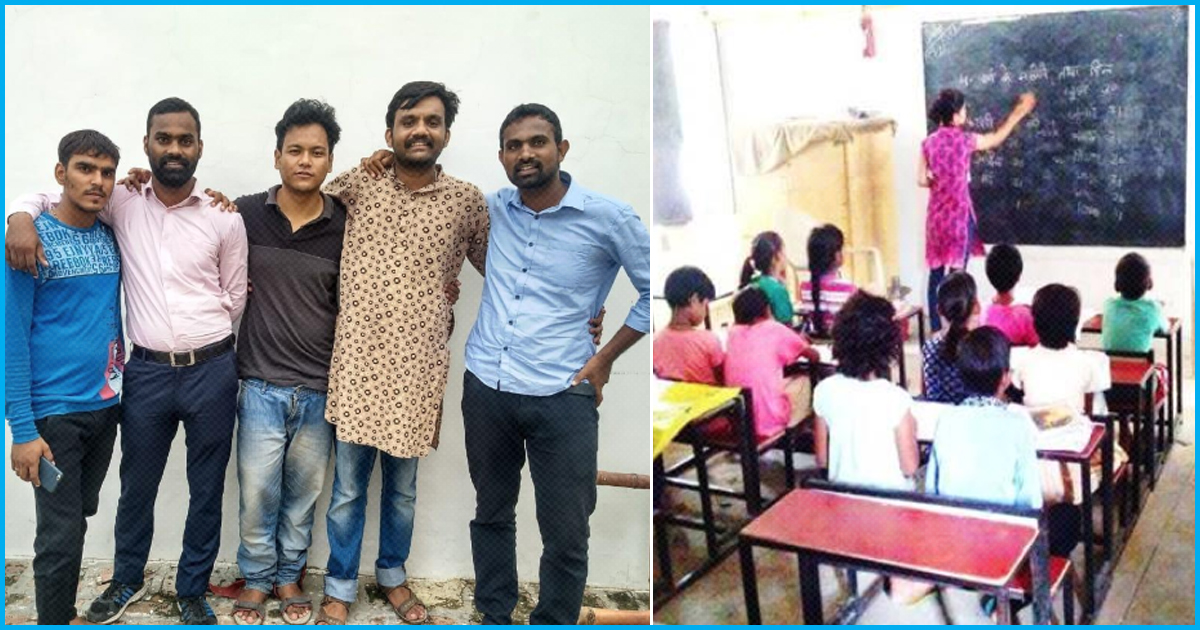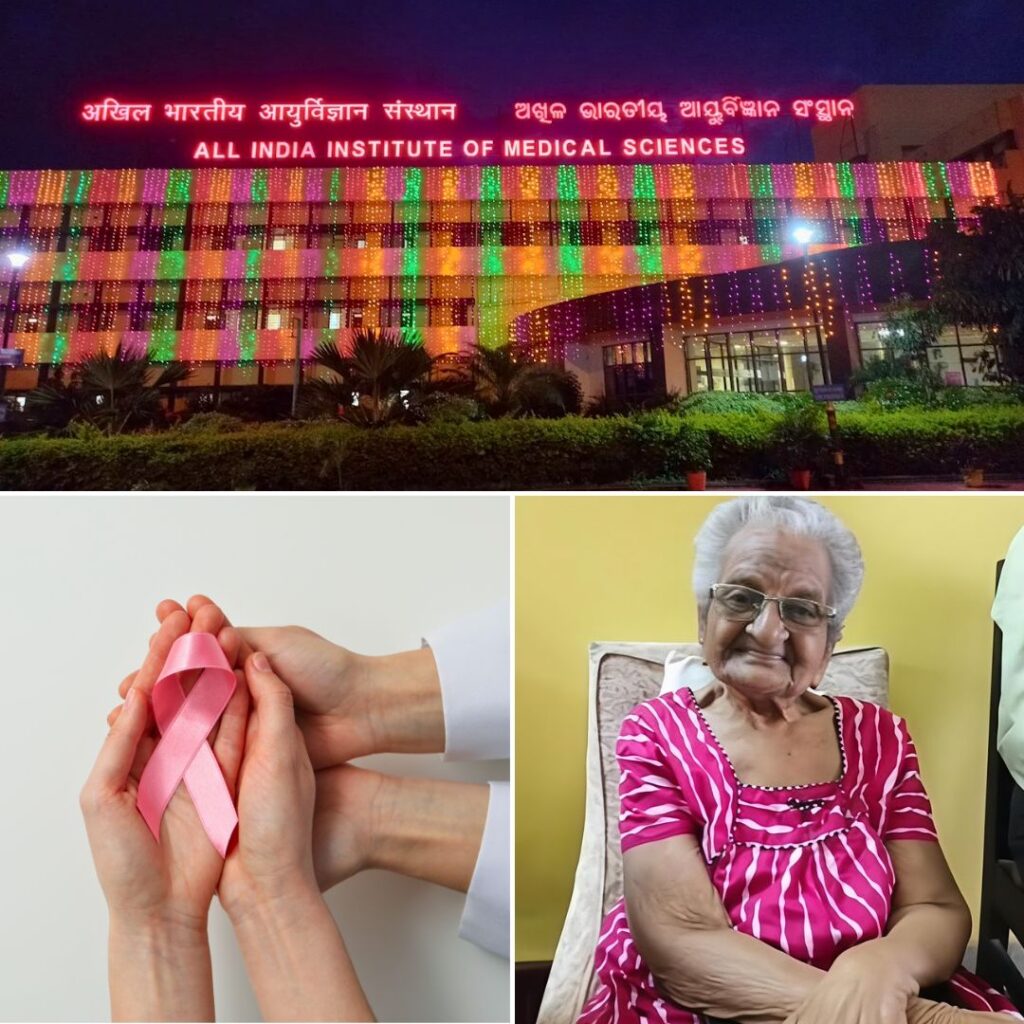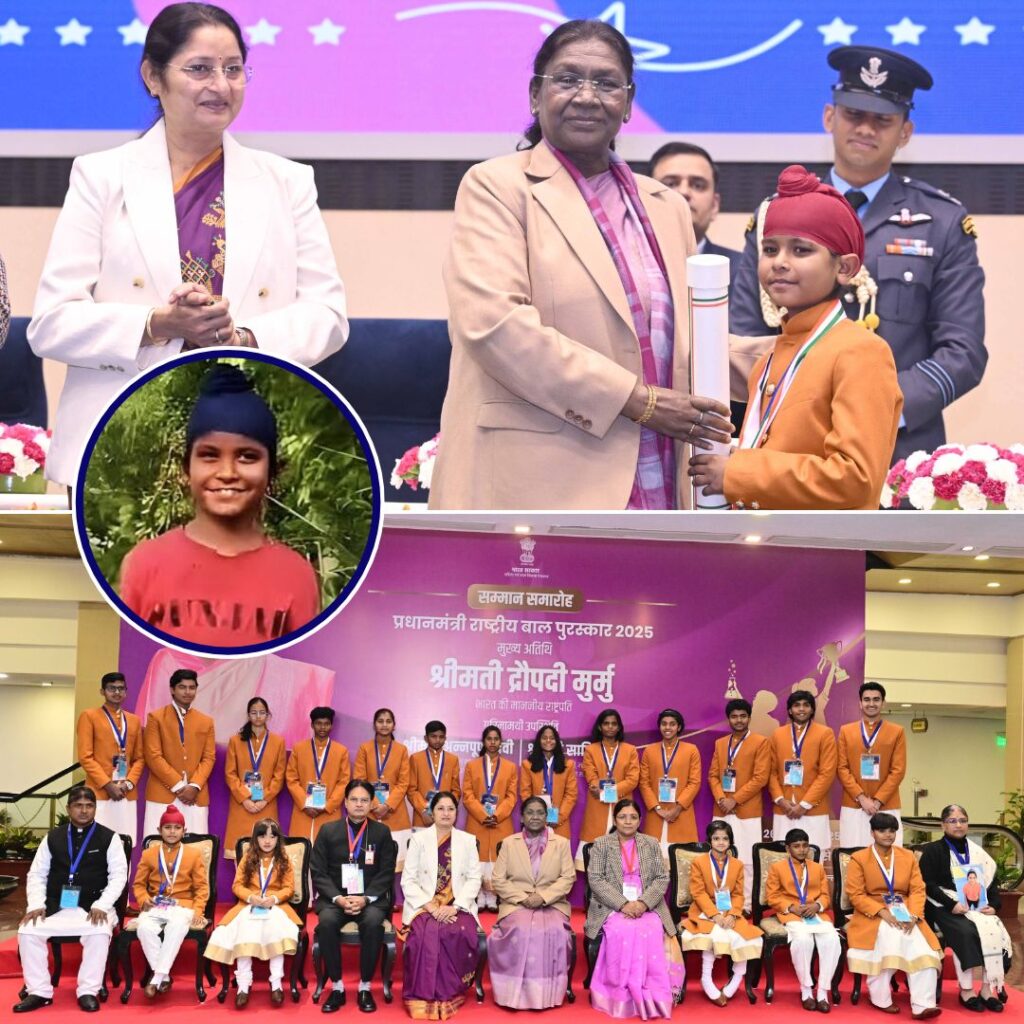It is not uncommon to hear stories about change makers creating ripples of change in different capacities within the education sector. However, fortunately, and unfortunately these stories majorly feature change makers from within the urban areas and metropolitan cities like Delhi, Bangalore, Mumbai, Chennai, Hyderabad etc.
This story is about Surender Yadav and his team – Biswajit Brahmma, Akash Mishra along with his college batchmates Lucky Gautam and Shyam, who are creating circles of love, trust and friendship within the community through their organisation, Self Reliant India in an endeavour to open pathways of opportunities for students of a small village, Raliawas and other neighbouring villages in District Rewari, Haryana.

Surender is an engineer, B.Tech from Vellore Institute of Technology. Post his engineering, Surender became a part of Gandhi Fellowship 2015-17 batch. The problem that Surender and his team are trying to address is complex, multi-faceted and seems obscure at least till we scratch below the surface.
“The children and the families who live in poverty, till the time they come out of poverty, they won’t get good opportunities and even if they do, they will drop out. SRI will work with those students who get an opportunity to get a world-class education and later on they get opportunities and are able to financially sustain their families”, says Surender Yadav.
The long-term vision of Self Reliant India is that no one should remain in poverty and every single child without exception must get the quality education. If every child gets a quality education, they will not be stuck in the vicious cycle of poverty. What drives them on a daily basis is that not a single child should be deprived of an excellent education because of lack of resources and finances.

Self Reliant India has a two-fold program in the schools that they engage with – Nanhe Kalam and Whole School Transformation.
As a part of their flagship program, Nanhe Kalam, they run classes for Mathematics and Reasoning in Hindi. The end goal of Nanhe Kalam is to empower the enrolled students to secure admission into Jawahar Navodya Vidyalayas, residential schools, fully funded by the Ministry of HRD. There is one Navodya School in every District of the country and the students gain admission into Grade VI through a highly competitive entrance exam.
Once they get into an agreement with the local government schools, they start running classes for a total of 2 hours after school. The teachers who help children prepare for the entrance exam are locals who are aspiring teachers, preparing for JBT and B.Ed. The most heart touching part is that all of them are working with Self Reliant India as volunteers, inducted after a rigorous selection process – a written test and interview by the local BEO(Block Education Officer).
Surender and his team conduct monthly capacity building workshops for the volunteer teachers. The purpose is to equip them with the latest pedagogy, best teaching practices which they are going to use in their roles as future teachers. They also conduct weekly assessments of the students to gauge their progress which is then conveyed to the parents during the most joyful and lively Parent-Teacher Meetings.

The second program that Self Reliant India is working on is Whole School Transformation. While in the short run, they are preparing students to secure an admission in Navodya Schools, in the long run, they are working on programs that will transform the entire school system and make every government school in Haryana at par with Navodya.
The sight that touches the hearts of many visitors, melts away their doubts and arouses boundless hope is the way Self Reliant India has involved parents, community, school staff and other stakeholders like family. Surendra and his team do not need extensive stakeholder management plans as they have created an atmosphere of a harmonious family within the school system in Raliawas. When appreciated for their work, the people present over there feel shy to take the credit for themselves and instead pass on the credit to others as a sign of respect.
The Gandhian principles that Surender and his team have cultivated have inculcated a sense of family within the ecosystem that they work.
“It is one of our values of not creating parallel structures next to the government, as we believe in working with the administration because only and only the government has the prowess to reach the last child and the existing machinery has full potential to deliver the change. Our initiative involves administration in all the stages of the project from selection, monitoring and felicitating the volunteer”; mentions Surender when asked more about how Self Reliant India have engaged the stakeholders who have become more of a family now.

Their values clearly reflect in the impact and the results that Self Reliant India has produced as an organisation. In the year 2018, 20 of their students got selected for Jawahar Navodya Vidyalayas, something unprecedented, never heard of before. Earlier, only 8-10% students from Government Schools used to crack an admission into the prestigious school, however, this time, from Rewari, due to Self Reliant India’s impact, 35% of the students from Government Schools have been selected in Jawahar Navodya Vidyalaya.
The soft power impact of Self Reliant India has been that 3 of their centres are now being run by government teachers, who got so inspired, that they stay back after school for 2 hours and help students prepare for the entrance exam, a feat rarely heard of.
Their love and affection have made those 2 schools, community-led schools with the people taking full responsibility(and zero credit) towards the challenges faced by the schools. While the school was facing a shortage of 2 teachers, the community raised 2 volunteers(whom they refer to as daughters of the community) to bridge that gap. The community also raised funds towards the improvement of infrastructure – toilets, paint, white boards, green boards and to top it all, the school was beautified by greenery – plants and trees. Now, 90% of the students in their village have enrolled in Government Schools, while many dropped out of private schools and enrolled in government schools. (In one school, the enrolment increased from 60 to 120 and in the other school from 98 to 155).
The journey of Self Reliant India, though very inspirational, isn’t devoid of challenges that they keep facing time and again and overcoming each one of them with humility, love and perseverance.
“The most difficult time for us was when we started the program, the government promised that they will pay their volunteers, however, the arrangement did not work out due to administrative hurdles. We had selected the volunteers and the classes had started. As we weren’t in the capacity to pay the volunteers they were initially clueless on how things will unfold for them. Our team told the volunteers about the situation honestly and with a pure heart. 25% of the volunteers left but a whopping 75% stayed back for the sake of children, village and society. The situation at that time was such that the existence of the organisation was on the brink of collapse”, recalls Surender.
At another instance, the Navodya examination paper was supposed to be conducted in the second week of February but due to an abrupt change, it got shifted to April 21. The volunteers had made commitment till February post which they had their commitments in other engagements. Ultimately, the Self Reliant India team did a crowdfunding campaign to raise some minimum stipend to compensate for their time till late April.

Appeal To The Logical Indian Community
Self Reliant India would like to make an appeal that every citizen, irrespective of their different backgrounds, take an active interest in the government school within their neighbourhood. Schools are a part of the larger community in which we live and the children, irrespective of their social background deserve the best education and opportunities. They urge every citizen of the country to visit their neighbourhood school and with utmost respect, humility and empathy, understand their challenges and contribute in any way possible towards the progress of the school.
If you are someone passionate about the cause of education and would like to enable government school students to get admission into Jawahar Navodya Vidyalayas or work on Whole School Transformation programs in your local schools and villages, contact Surender Yadav on +91-8295023543 or connect on email at [email protected]
Website – https://www.srindia.org
Facebook – https://www.facebook.com/SRIndia.org
Also Read: This TISSian From Kanpur Is Creating Ripples Of Change At Grassroot Level In Rural India











